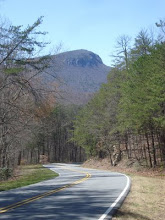I attended our monthly meeting at the Job Link center in Walnut Cove yesterday and was very pleased to meet Elisha Harris, Success coach for the Community Service Block Grant progarm in Stokes County. Elisha is a very impressive young lady that has a passion for her work that is readily apparent. The Self-Sufficiency Program is designed to assist individual or families to overcome poverty. What a wonderful idea. It isn't about applying a temporary fix, it is about overcoming poevery and helping gain employment in a position paying a living wage.
This is accomplished by assisting clients in their efforts to improve their educational status but it appears to go deeper by looking for ways to empower their clients by teaching the coping skills such as: survival skills (I take this to mean surviving life, not necessarily the in wilderness conditions but what we face every day), budgeting classes, nutrition classes and much more. Many of us take these skills for granted but I think in the financial conditions we find ourselves in today, I think these skill sets are often not taught and they are not something that comes naturally.
Ther are a limited number of slots for this program in the county, but for some reason, they have a difficult time filling these positions, therefore, I challenge the readers of this blog, if you know someone who can use a hand and truly wants to improve their position in life, make them aware of Elisha and this program. She can be reached at stokescsbg@hotmail.com or by calling 336-593-2371. This is not a "Hand-out but a Hand-up" and we can all use one of those from time to time.
Truffles NC Keeps on Keeping on!!
5 years ago




